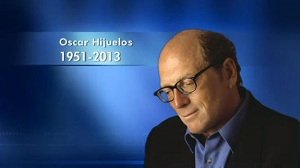
The sad news was announced by his literary agent, Jennifer Lyons; according to her, the accident happened when Mr. Hijuelos was playing tennis in New York City, probably as a result of overexertion. His wife says that he simply fell down on a tennis court and died some time later, never regaining consciousness.
Pulitzer Prize was awarded to him in 1990 for his second novel, The Mambo Kings Play Songs for Love, which was later adapted for screen and in 1992 became a Hollywood movie starring Antonio Banderas and Armand Assante. Just like the majority of his work this book was mainly dedicated to the depiction of lives of immigrants from Latin America and their striving to achieve the American dream. In this novel, two Cuban brothers united by a passionate dream to start their own orchestra travel from Havana to New York. The book earned him international fame, being translated into 25 languages and published all over the world.
This topic was close and familiar to Hijuelos because, although he wasn’t an immigrant himself, he was born to a family of Cuban immigrants in 1951. Nevertheless, as he stated in his memoir Thoughts Without Cigarettes (published in 2011), for the majority of his life he was striving to avoid being labeled as an ethnic writer, saying that he did everything he could to make his writing universal and interesting for anyone, irrespectively of their nationality.
However, among the writers who inspired him he usually mentioned mostly Cuban and Latin American authors, for example, Gabriel Garcia Marquez, Jose Lezama Lima and Carlos Fuentes. According to Hijuelos, he never thought he would become a writer, at least when he was young. And even after he made it to publishing his books it took a Pulitzer Prize to really give him the feeling that he was doing what he was meant to do.
In addition to fiction, he took part in some other activities. Since 2008 he taught at Duke University, where he specialized in creative writing. His scientific research, however, was concentrated on archaeology and religion – a lot of his books had some religious or mystical overtones, and he was very interested in studying this topic first-hand.
